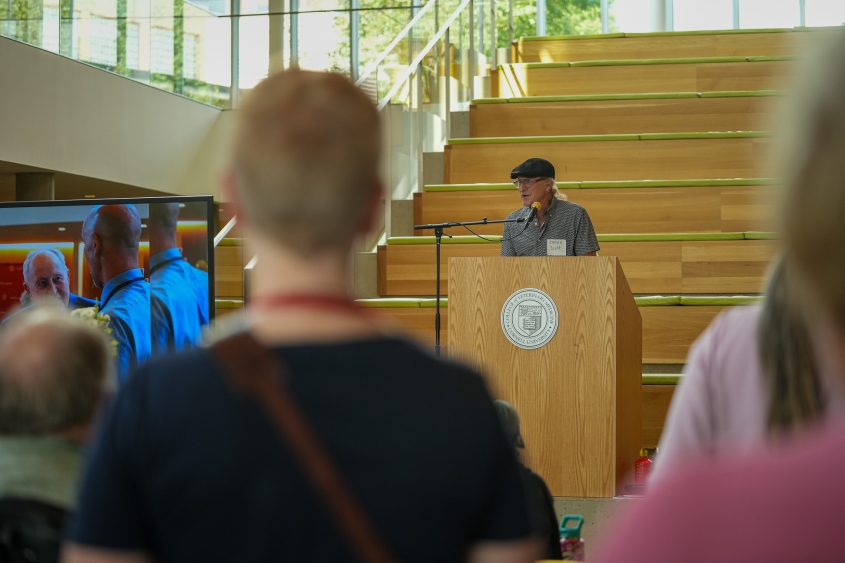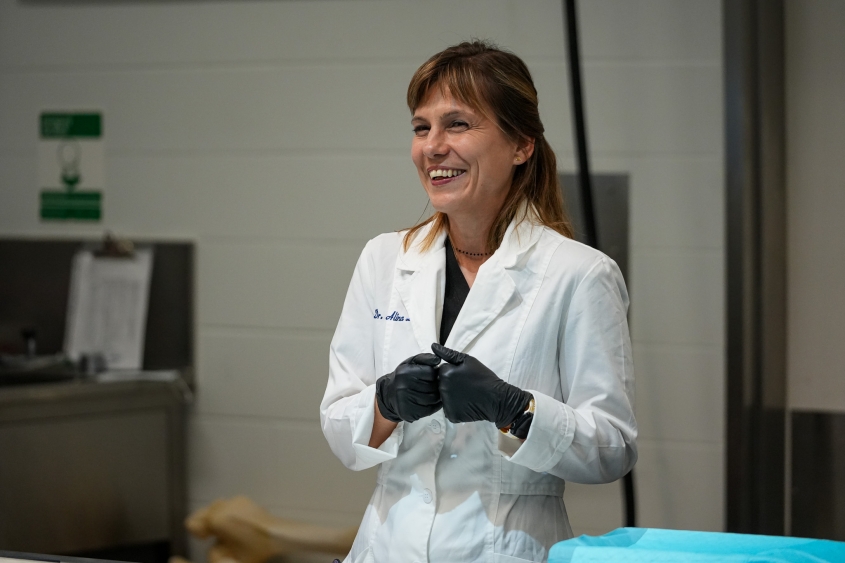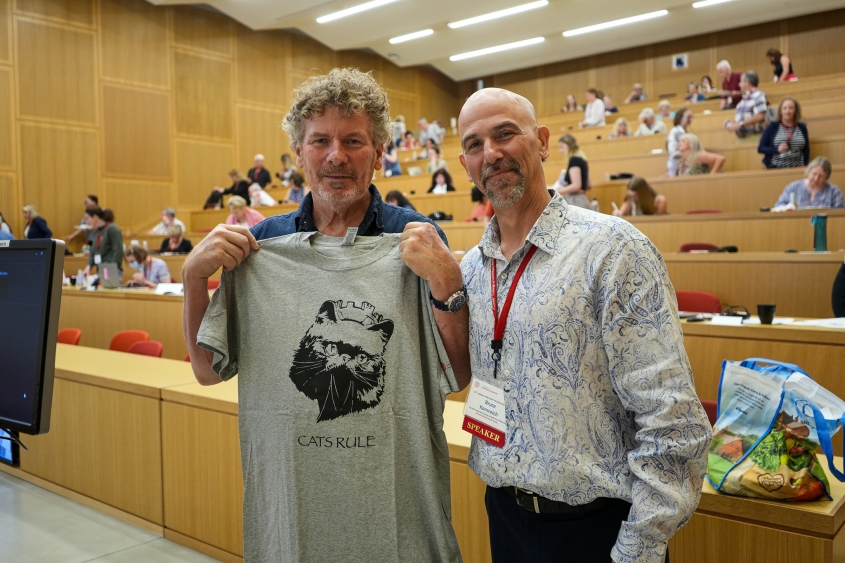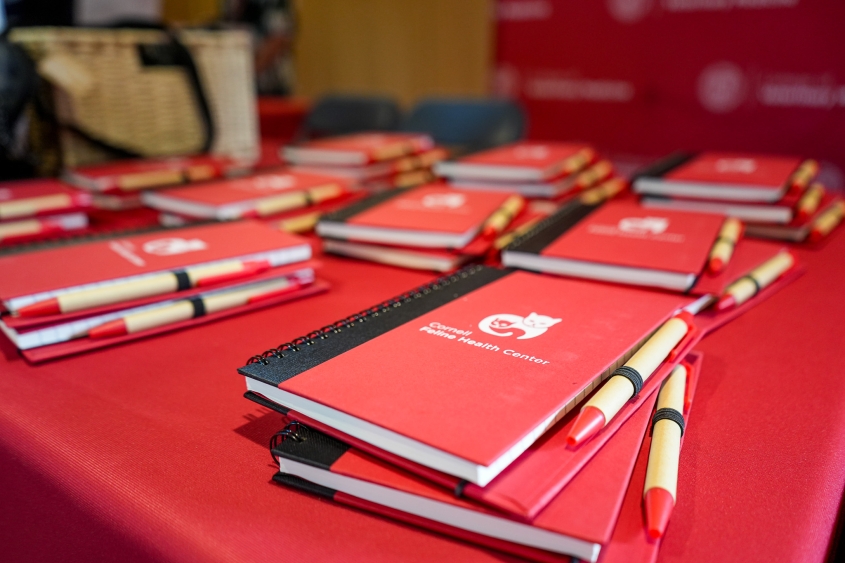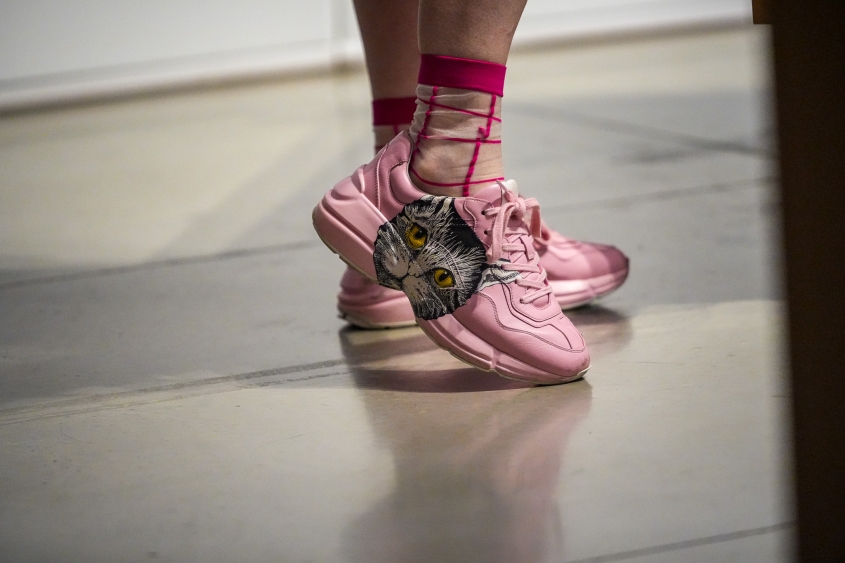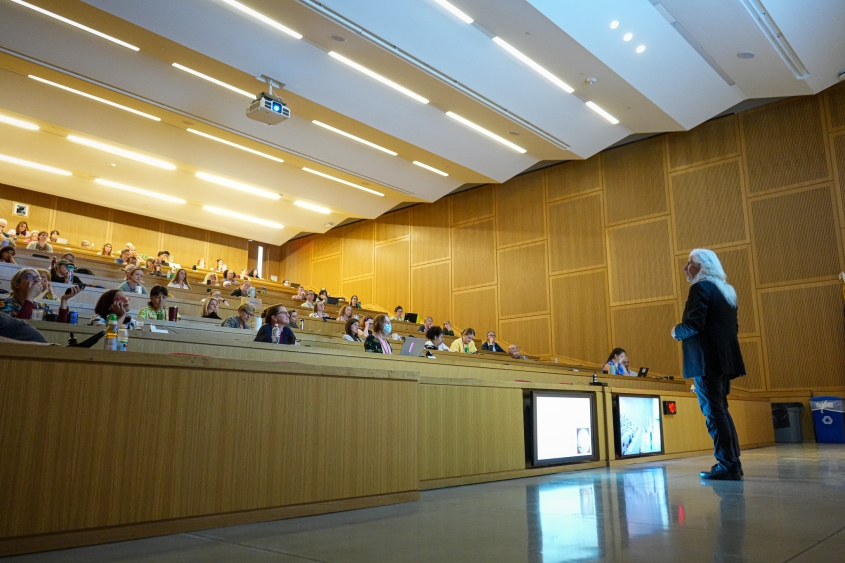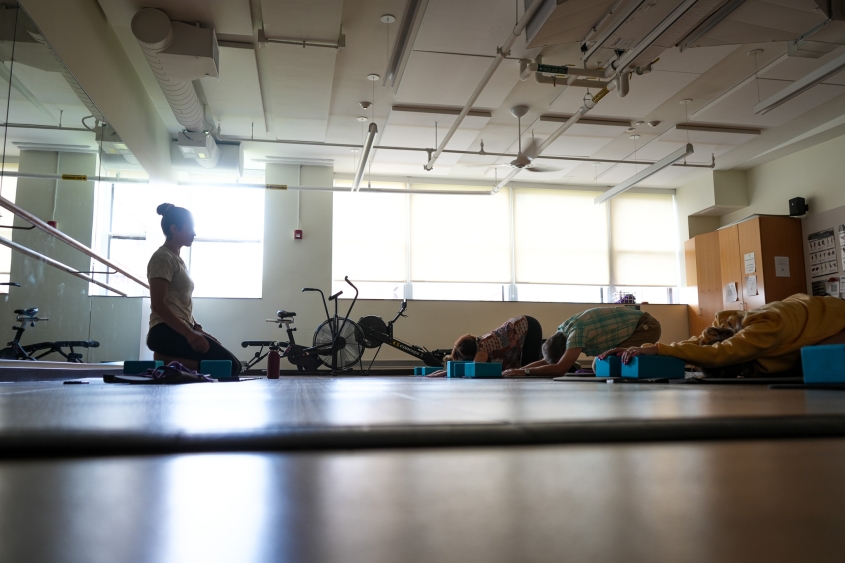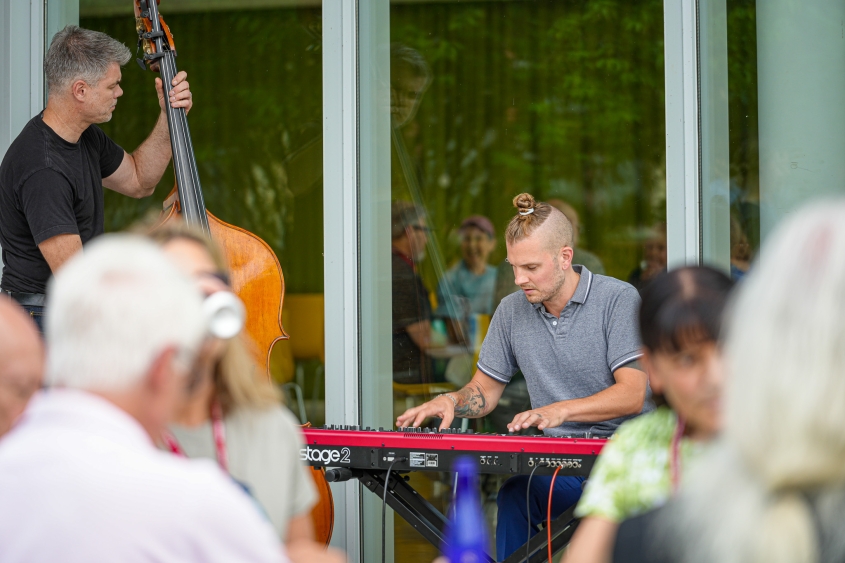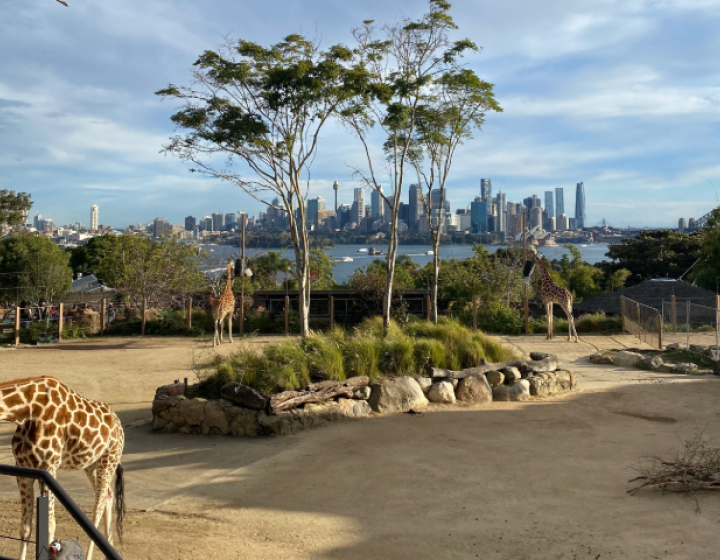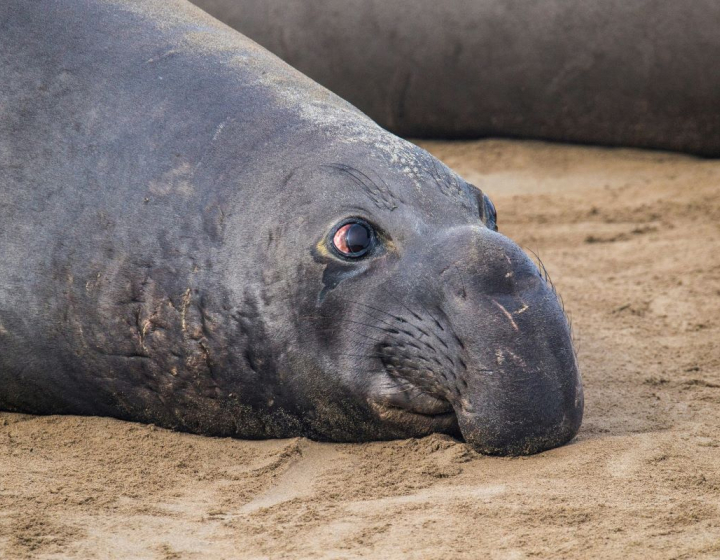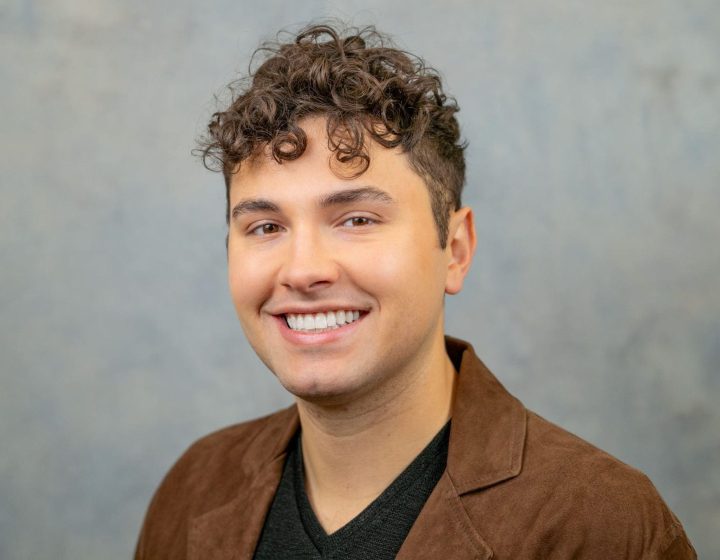The 37th annual Fred Scott Feline Symposium remains at the forefront of feline health
The Cornell Feline Health Center recently hosted the 37th offering of the annual Fred Scott Feline Symposium at the Cornell University College of Veterinary Medicine during the last weekend of July. The symposium is organized and hosted by the Cornell Feline Health Center in collaboration with Continuing Education and Educational Support Services.
Sadly, this year marked the first symposium since the passing of Dr. Fredric W. Scott, D.V.M. ’62, Ph.D. ’68, professor emeritus and founding director of the Cornell Feline Health Center, in April of 2025. A revolutionary force in feline medicine, the symposium was renamed in his honor in 1997. Attendees were given the opportunity to honor Dr. Scott’s legacy on the first night of the conference during a public memorial reception. Members of Dr. Scott’s family, friends, colleagues and fellow experts in feline medicine joined attendees to reminisce and pay homage to the symposium’s namesake.
The weekend’s program included cutting edge presentations on the diagnosis, treatment and prevention of a variety of feline infectious diseases, including H5N1avian flu, panleukopenia and feline infectious peritonitis, updates on feline cholangiohepatitis and inflammatory bowel disease, and the importance of responsible antibiotic stewardship. An interactive Show-and-Tell session offered hands-on learning through real-time necropsies and in-depth discussions of feline disease cases, and attendees learned about the use of radiation therapy for non-cancerous feline diseases and the risks of feeding raw diets to cats, among many other important feline health topics.
A total of 450 attendees registered for this year’s symposium, including 329 virtual guests from 25 countries, including Estonia, Germany, Pakistan, Brazil, Nigeria, Russia, Australia and Japan. This year marked the third consecutive symposium at which on-site registration surpassed 90 attendees, and virtual attendance continued to expand with respect to attendee registration and geographic reach.
In addition to the presentations and lectures provided, on-site attendees also enjoyed chair massages, yoga sessions, tours of the Cornell University Hospital for Animals and live music during a barbecue held in the college’s atrium and adjoining outdoor facilities. On-sight Cornell Feline Health Center members were also provided with exclusive case-based feline cardiology rounds presented by Bruce Kornreich, D.V.M. '92, Ph.D. '05, DACVIM, director of the Cornell Feline Health Center.
For additional coverage of this year's symposium and everything else related to feline health, follow Cornell Feline Health Center social media.
Photos by John Enright and Junelle King, Cornell Feline Health Center
Members of Dr. Fred Scott's family attended the first night of the symposium during a public memorial reception in his honor. Duane Scott, Dr. Scott’s son, spoke to a full CVM atrium about his father's legacy and character.
Dr. Elena Demeter, assistant clinical professor of anatomic pathology at Cornell University and the director of its pathology residency program, presented interactive feline cases during two Show and Tell sessions at this year's symposium.
Colin Parrish, Ph.D. ’84, the John Olin Professor of Virology at the Baker Institute for Animal Health, and Bruce Kornreich, D.V.M. '92, Ph.D. '05, director of the Cornell Feline Health Center, pose together following Dr. Parrish’s presentation on feline panleukopenia.
Cornell Feline Health Center notebooks sit at the ready to be provided to attendees upon arrival. Attendees had ample opportunity to take notes during the three-day conference, during which 15 ½ hours of continuing education were presented by ten speakers.
Dr. Tracy Geiger, clinical professor of radiation oncology at the Cornell University College of Veterinary Medicine, shows off her cat-centric style during a session on the use of radiation therapy to treat non-cancerous inflammatory feline diseases.
Attendees enjoy a presentation focused on managing chronic feline enteropathies presented by Dr. Kenneth Simpson, the Maurice R. and Corinne P. Greenberg Professor in the section of small animal internal medicine at Cornell University.
Dr. Michael Lappin, professor of infectious disease in the department of clinical sciences at Colorado State University, provided updates on the management of a variety of important feline infectious diseases, including chronic upper respiratory tract infections in cats.
Symposium attendees take the opportunity between sessions to stretch, recharge and restore in the Well-being Community Room at the Cornell University College of Veterinary Medicine.
A group of attendees follows Bruce Kornreich, D.V.M. '92, Ph.D. '05, director of the Cornell Feline Health Center, on a tour of the facilities in the Cornell University Hospital for Animals.
Guests enjoy delicious barbeque and live music following the conclusion of lectures and labs on the second evening of the symposium.



